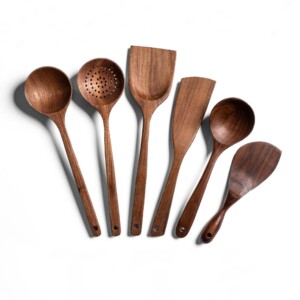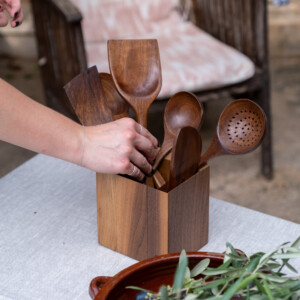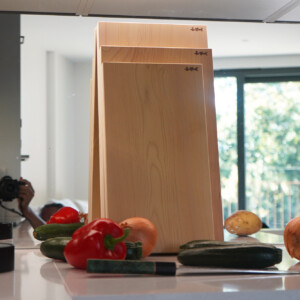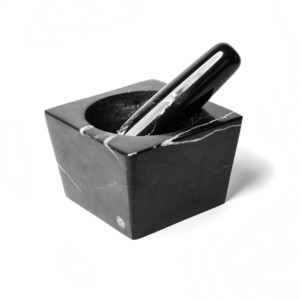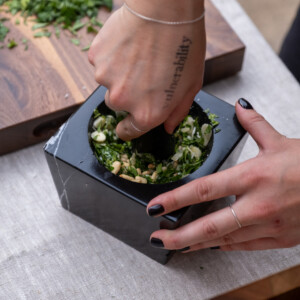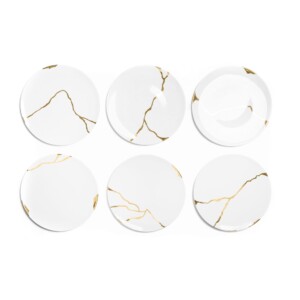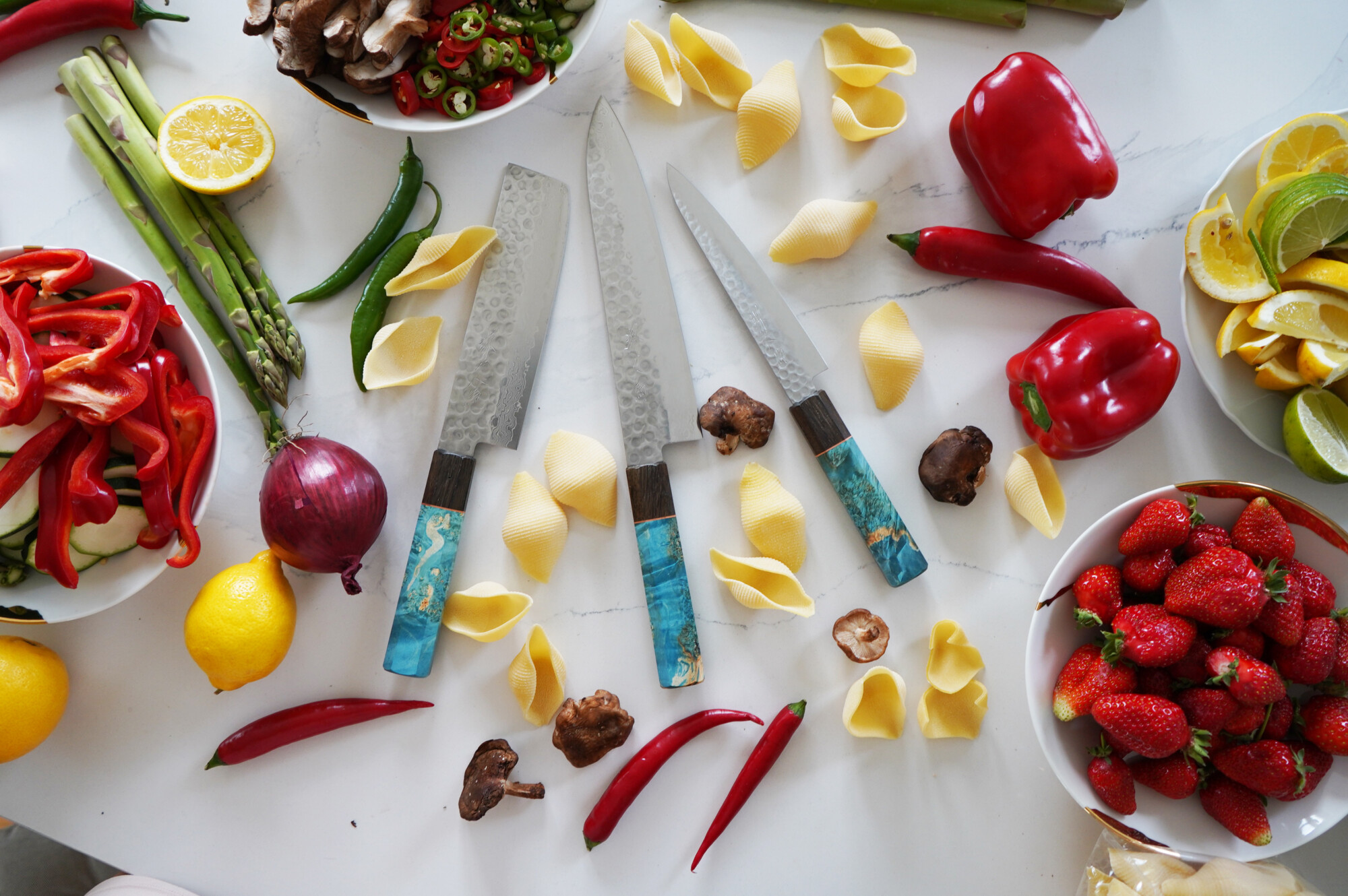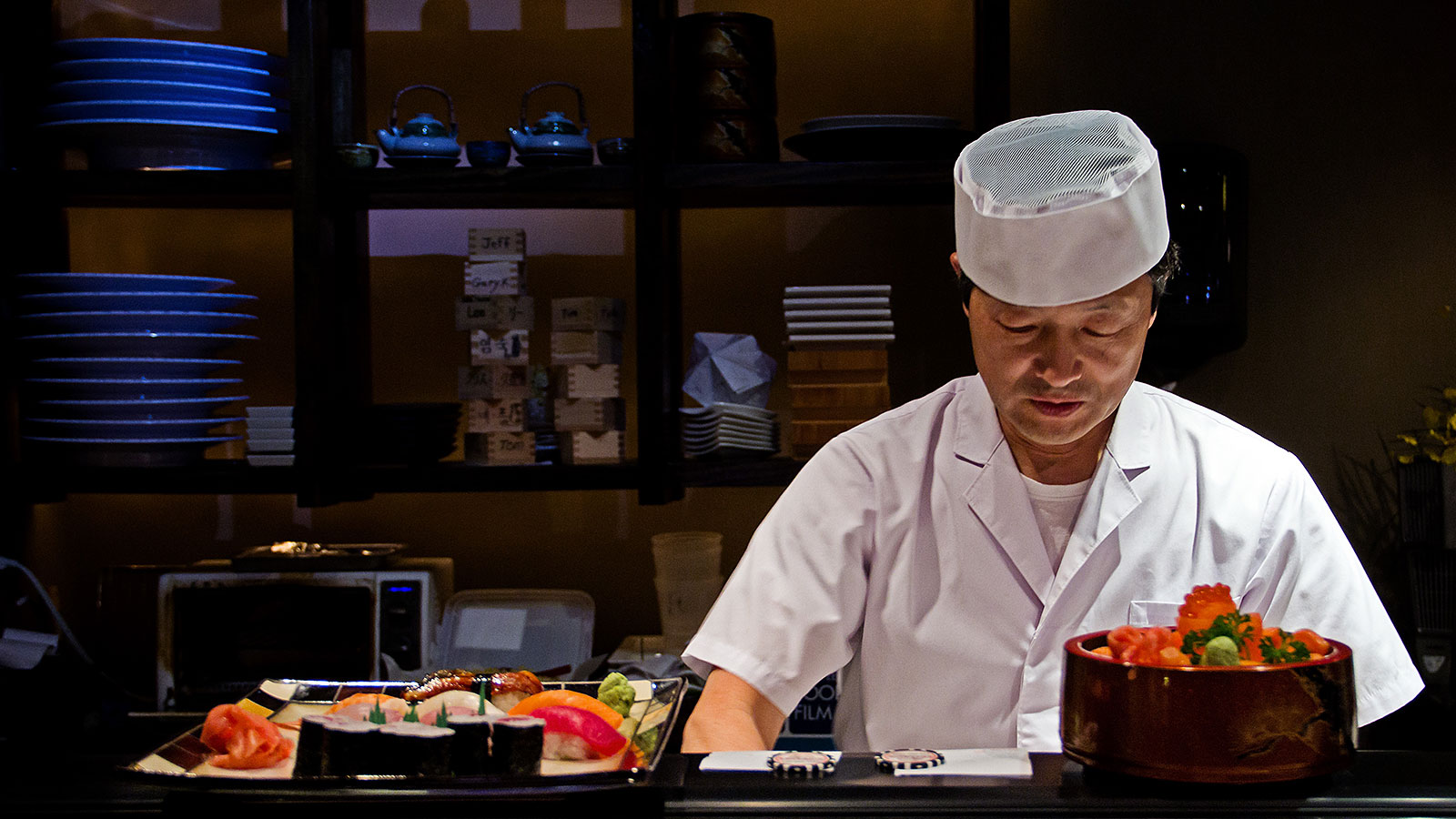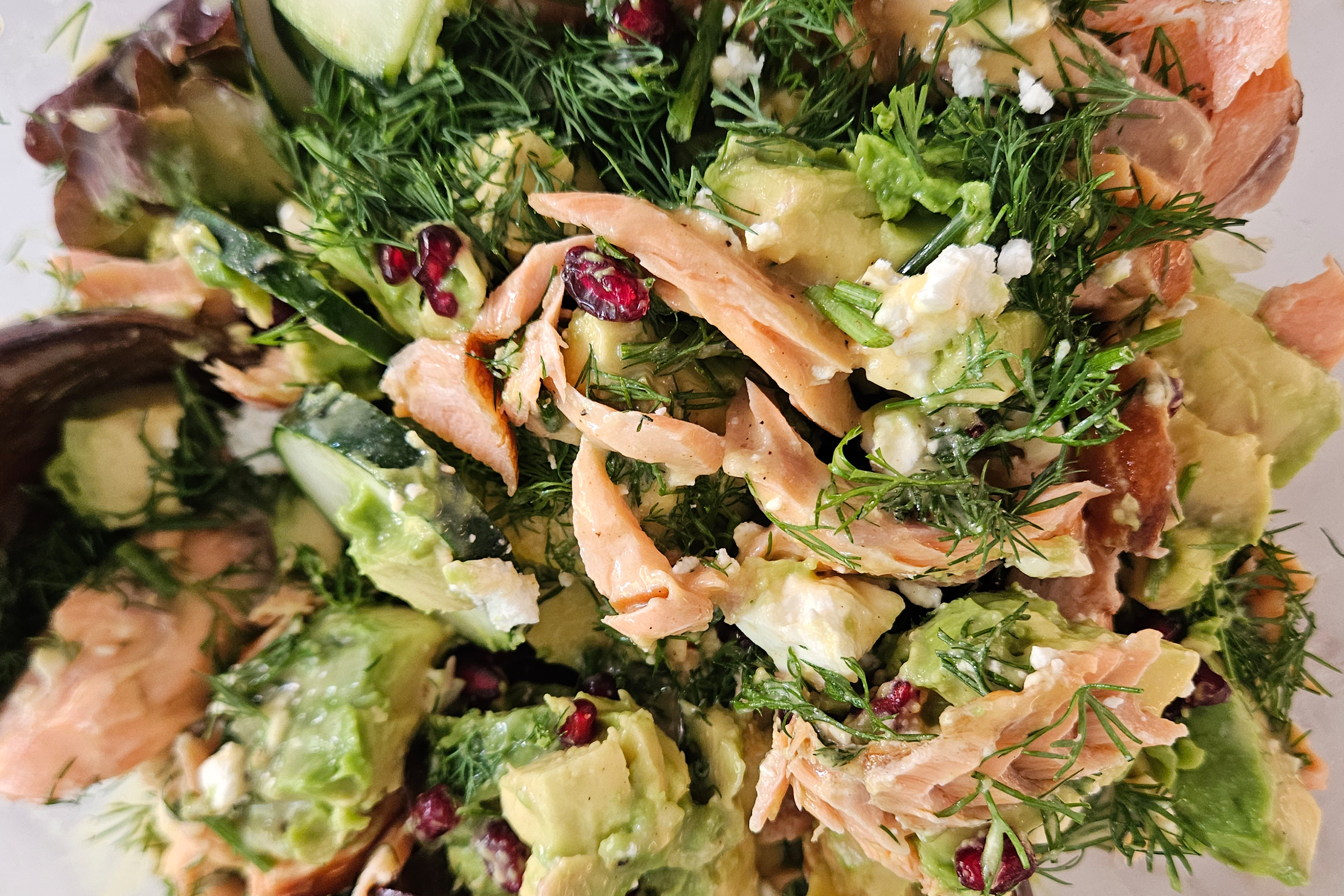Nagomi (和み), a profound concept in Japanese culture, embodies the essence of harmony and balance. It’s not merely a word; it represents an ideal, a way of living that permeates through every facet of life, from personal spaces and relationships to culinary practices and mindfulness.
At its core, Nagomi is about finding peace and contentment in one’s surroundings and interactions. In Japanese tradition, this concept is not limited to the physical environment but extends to emotional and spiritual realms. It’s about creating a balance that resonates with one’s inner self and the external world, fostering a sense of tranquility and well-being.
In the bustling modern world, where chaos often reigns, the principles of Nagomi offer a refreshing counterpoint. It encourages slowing down, appreciating the beauty in simplicity, and fostering harmonious relationships with others and oneself. This principle is evident in various aspects of Japanese life, from the meticulous arrangement of a Zen garden to the thoughtful presentation of a traditional meal.
For those who wish to incorporate Nagomi into their lives, it begins with an awareness of the environment and a conscious effort to bring balance and serenity into everyday activities. Whether it’s through decluttering living spaces, engaging in peaceful meditations, or savoring the process of cooking a meal, Nagomi offers a pathway to a more centered and fulfilling life.
Nagomi in Personal Spaces: Creating a Harmonious Home Environment
Embracing Simplicity and Balance
The Japanese concept of Nagomi extends beautifully into the realm of home environments. In essence, creating a harmonious space is about more than just aesthetic appeal; it’s about fostering an atmosphere of tranquility and balance. This can be achieved through various means such as decluttering, selecting calming color schemes, and incorporating natural elements.
- Decluttering for Peace of Mind: In the spirit of Nagomi, less is often more. Decluttering is not just a physical act but a mental one. By removing unnecessary items and organizing your space, you create a peaceful environment that reflects clarity and calmness.
- Color and Nature: Using soft, earthy tones can invoke a sense of serenity in your home. Additionally, incorporating elements of nature like plants or water features can bring a soothing and grounding energy, essential for Nagomi.
- Functional Elegance: Every item in a Nagomi-inspired space should serve a purpose, whether functional or aesthetic. This includes kitchenware and tools. Choosing items that are both beautiful and useful, like handmade Japanese kitchen knives, adds to the sense of harmony and efficiency in the kitchen.
The Kitchen: A Centrepiece of Home Harmony
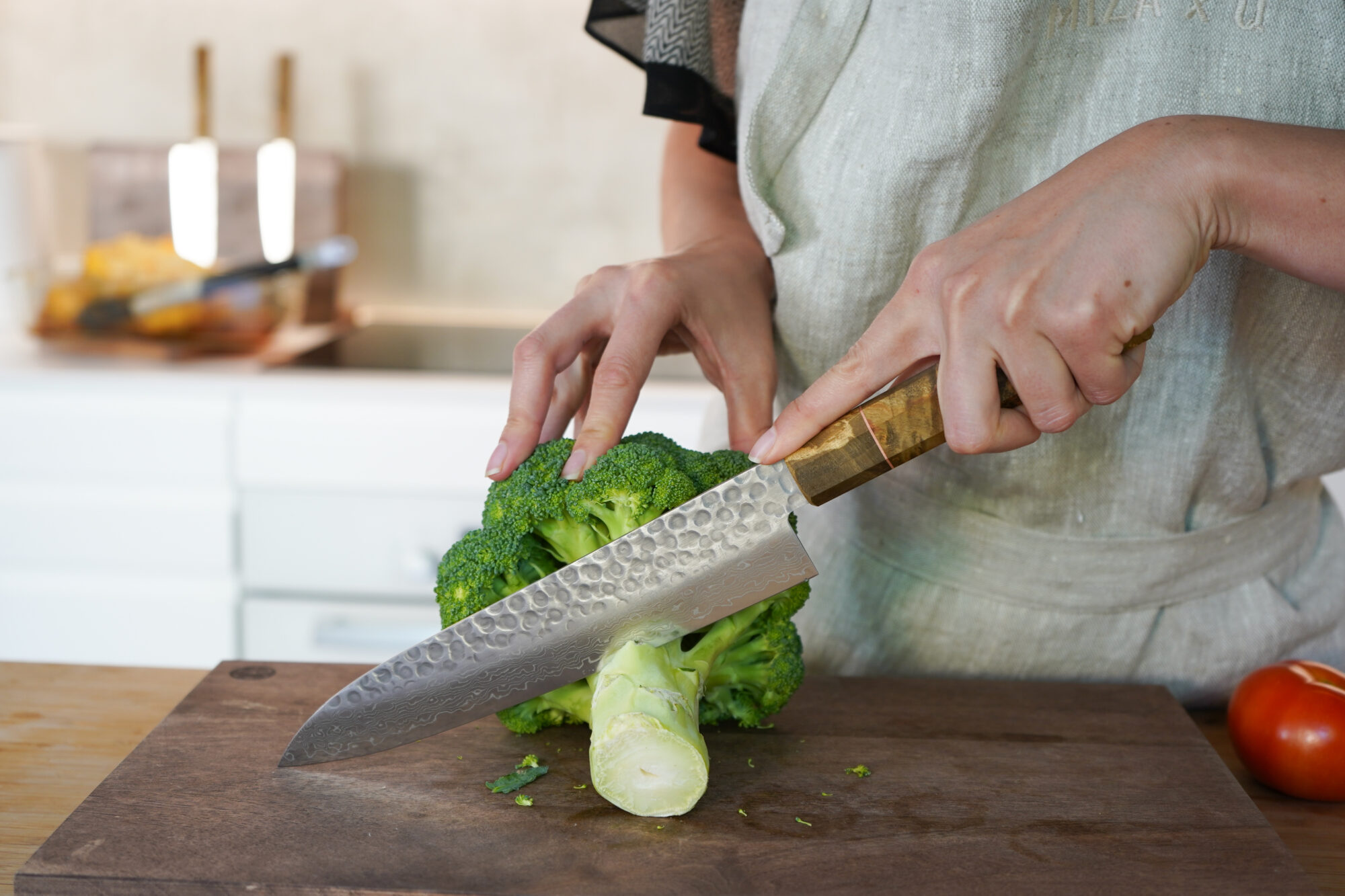
The kitchen, often the heart of the home, is a perfect place to apply Nagomi principles. It’s not just about preparing food but creating a space where cooking becomes a joyous and meditative practice.
- Mindful Cooking with Quality Tools: The use of high-quality, handmade knives is not just a culinary preference but a step towards Nagomi in the kitchen. A sharp, well-crafted knife, for instance, can transform food preparation from a chore into a mindful activity, enhancing the overall cooking experience.
- Organized and Aesthetic Kitchenware: Aligning with the theme of functionality and beauty, organizing kitchenware in an accessible and visually pleasing way contributes to a harmonious kitchen. Handmade kitchen stands or magnetic racks for knives not only add aesthetic value but also maintain the order and serenity of the space.
Integrating Nagomi in Living Spaces
Beyond the kitchen, the principles of Nagomi can be applied to other living areas to create a cohesive sense of harmony throughout the home.
- Purposeful Furnishing: Choose furniture that balances form and function. Every piece should serve a purpose and contribute to the overall feeling of balance and simplicity.
- Spaces for Relaxation: Create specific areas in your home dedicated to relaxation and reflection, such as a reading nook or a Zen garden corner. These spaces should invite tranquility and offer a retreat from the busy world outside.
In summary, integrating Nagomi into your personal spaces is about creating environments that resonate with balance, tranquility, and mindful living. Whether it’s through the thoughtful arrangement of your living spaces or the selection of kitchenware that blends aesthetic beauty with functionality, the essence of Nagomi can transform your home into a haven of harmony.
Nagomi in Relationships and Social Interactions
Fostering Harmony in Personal Connections
Nagomi’s philosophy extends beyond individual well-being to encompass the quality of our relationships and social interactions. It underscores the importance of balance, empathy, and understanding in creating harmonious connections with others.
- Empathetic Communication: Practicing Nagomi in relationships involves active listening and empathetic responses. It’s about understanding the other person’s viewpoint and finding a middle ground that respects both perspectives.
- Resolving Conflicts with Grace: Conflict is inevitable in any relationship. Nagomi teaches us to approach disagreements with a mindset of harmony and resolution, focusing on peaceful solutions rather than winning arguments.
- Celebrating Differences: Embracing Nagomi means appreciating the diversity in people’s thoughts, backgrounds, and experiences. It’s about finding harmony in differences, not just similarities.
The Role of Nagomi in Professional Environments
Nagomi is equally relevant in professional settings, where it can enhance teamwork and create a more positive and productive work environment.
- Collaboration and Teamwork: Encouraging a Nagomi-inspired workplace means fostering a spirit of collaboration. It’s about working together harmoniously, where each member’s contribution is valued and respected.
- Mindful Leadership: Leaders who embrace Nagomi lead by example, promoting a balanced and inclusive work culture. They understand the importance of employee well-being alongside productivity.
- Work-Life Balance: Nagomi in the professional realm also involves maintaining a healthy balance between work and personal life, recognizing that overworking can disrupt personal harmony and overall productivity.
Nagomi in Community and Social Settings
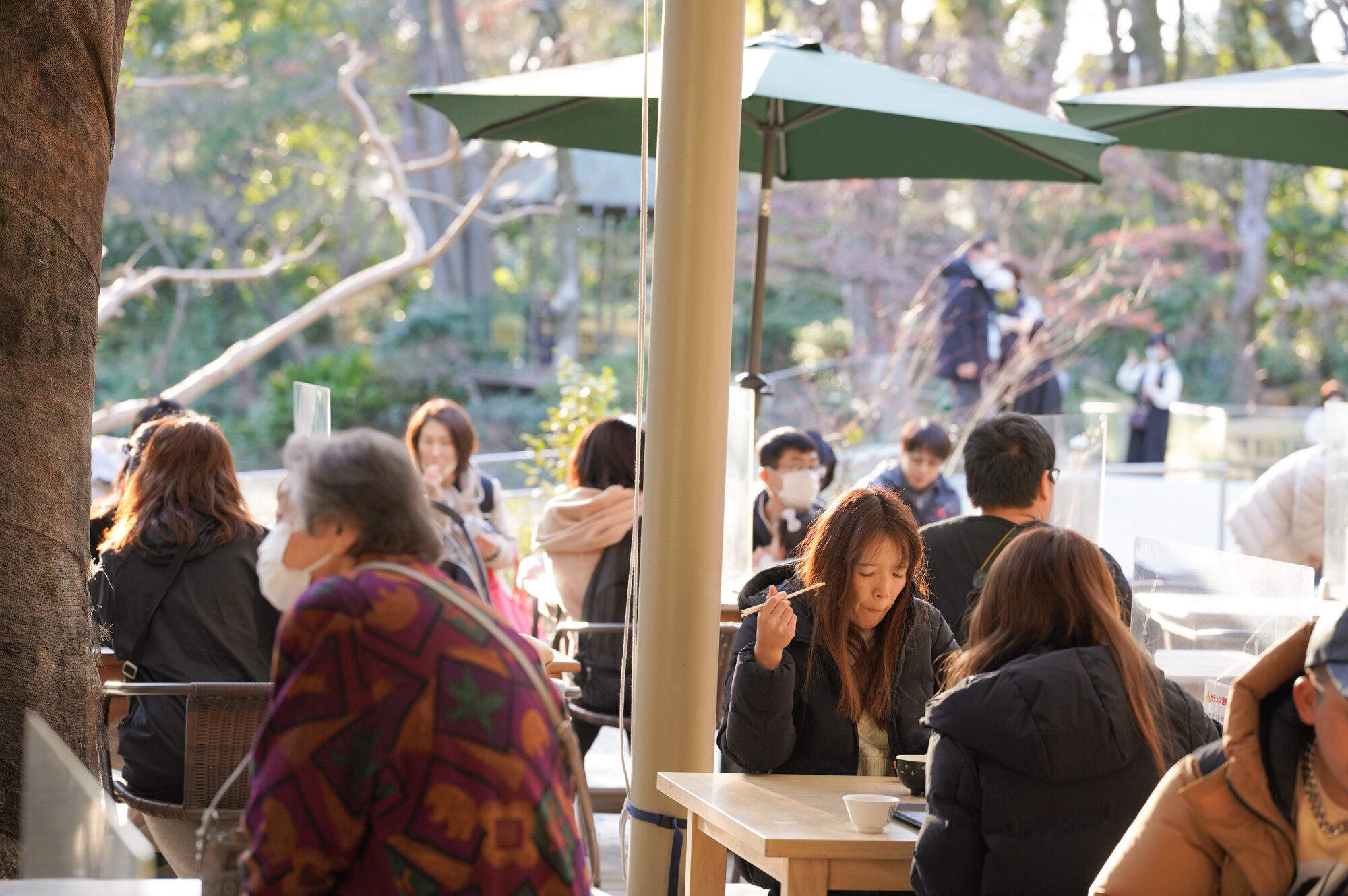
The essence of Nagomi can significantly impact broader community and social settings, promoting a culture of respect and mutual understanding.
- Community Engagement: Engaging in community activities with a Nagomi mindset means contributing positively and constructively, respecting the community’s needs and values.
- Social Gatherings and Events: When organizing or participating in social events, incorporating Nagomi can transform the atmosphere. It’s about ensuring that everyone feels included, valued, and at ease.
Incorporating Nagomi into our relationships and social interactions is not just about enhancing our personal experiences but also about contributing to a more harmonious and understanding world. By practicing empathy, mindfulness, and balance in our interactions, we can create deeper, more meaningful connections with those around us.
Nagomi in the Kitchen: The Essence of Japanese Culinary Traditions
The Meditative Art of Cooking
In the heart of many homes lies the kitchen, a place where the principles of Nagomi can profoundly influence the cooking experience. The act of preparing a meal is not just a physical process; it’s a meditative practice that can bring inner peace and satisfaction.
- Mindfulness in Meal Preparation: Embracing Nagomi in cooking involves being fully present in the process. It’s about appreciating the colors, textures, and aromas of the ingredients, and the rhythmic motion of chopping and stirring.
- Harmony in Ingredients and Flavors: Japanese cuisine is renowned for its emphasis on balance and seasonality. Incorporating Nagomi means selecting ingredients that complement each other and create a harmonious blend of flavors.
- The Ritual of Eating: The way we eat is as important as the way we cook. Nagomi encourages savoring each bite, eating slowly, and appreciating the meal, fostering a deeper connection with the food and the moment.
The Role of Japanese Kitchen Knives
A pivotal aspect of Nagomi in the kitchen is the choice of tools, particularly the use of Japanese kitchen knives. These knives are not just tools; they’re embodiments of craftsmanship and tradition.
- Quality That Lasts: Japanese kitchen knives are celebrated for their durability and precision. Choosing a knife that is both sharp and beautifully crafted is not just an investment in quality but a commitment to the Nagomi way of life.
- Handmade Knives: A Blend of Art and Utility: Each handmade knife is a unique piece of art, reflecting the skill and dedication of its maker. Using such a knife brings a sense of respect and appreciation for the craft, elevating the cooking experience.
- Enhancing the Cooking Experience: A sharp, well-balanced knife allows for precise cuts, which not only improve the aesthetics of the dish but also enhance the flavors and textures. The right knife can transform cooking from a mundane task into a joyful and fulfilling activity.
Integrating Nagomi in Cooking Habits
Adopting Nagomi in your cooking habits can lead to a more enjoyable and harmonious kitchen experience.
- Thoughtful Kitchenware Selection: Just like the careful selection of ingredients, choosing the right kitchenware is crucial. Opt for items that are both functional and beautiful, such as handmade stands or magnetic knife racks, which add to the kitchen’s aesthetic while keeping tools organized and accessible.
- Creating a Peaceful Cooking Environment: The layout and ambiance of your kitchen should reflect the principles of Nagomi. An uncluttered, well-organized space with a calming color scheme can significantly enhance your cooking experience.
- Sharing the Experience: Cooking can be a solitary meditative practice or a shared activity. Inviting family or friends to cook together can be a way of extending the harmony and joy of Nagomi to others.
Incorporating Nagomi into your kitchen and cooking practices is not just about preparing food; it’s about creating a space of balance, respect, and mindfulness. It’s a journey that begins with the choice of tools, like a finely crafted Japanese knife, and extends to every aspect of the cooking process, from ingredient selection to the final presentation of the dish.




